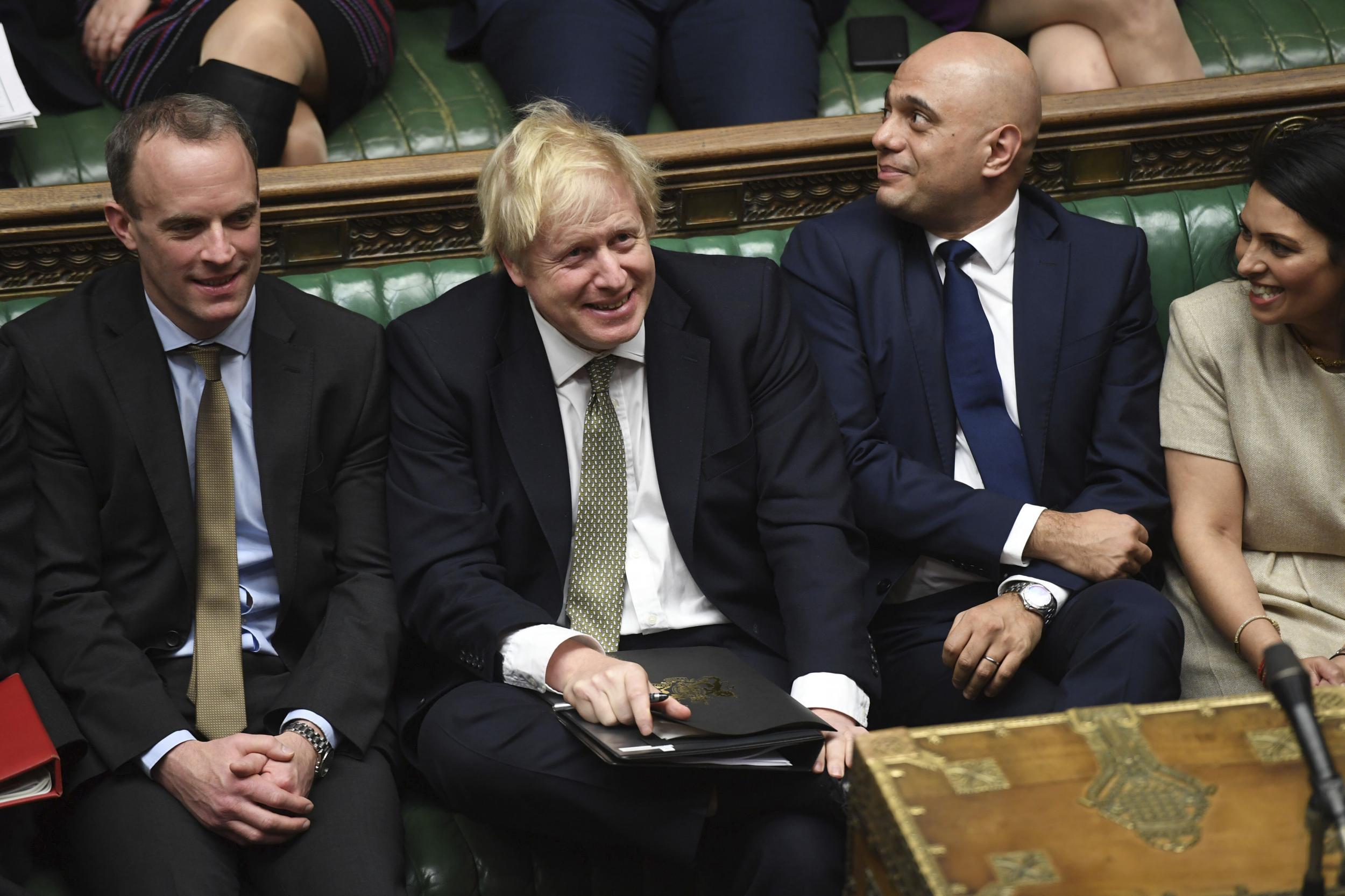Boris Johnson’s government is forcing the Brexit bill through, and all we can do is watch
Everything has changed. MPs have voted by a majority of 124 to ‘Get Brexit Done’ and there is nothing anyone can do about it


Your support helps us to tell the story
From reproductive rights to climate change to Big Tech, The Independent is on the ground when the story is developing. Whether it's investigating the financials of Elon Musk's pro-Trump PAC or producing our latest documentary, 'The A Word', which shines a light on the American women fighting for reproductive rights, we know how important it is to parse out the facts from the messaging.
At such a critical moment in US history, we need reporters on the ground. Your donation allows us to keep sending journalists to speak to both sides of the story.
The Independent is trusted by Americans across the entire political spectrum. And unlike many other quality news outlets, we choose not to lock Americans out of our reporting and analysis with paywalls. We believe quality journalism should be available to everyone, paid for by those who can afford it.
Your support makes all the difference.It was like a parliament of cartoon characters, still running in mid-air after they had gone over the cliff. Some MPs were still rehearsing the arguments of the 2016 referendum. Bill Cash, the Conservative Eurosceptic, spoke about 1660 and Hitler.
Others were still reciting their objections to the substance of the withdrawal agreement bill, as if the outcome of the vote were in doubt. Hilary Benn, the Labour grandee, made important and detailed points about the need for customs declarations on goods going from Northern Ireland to the rest of the UK. Many Labour MPs fiercely declared that they would vote against the bill and insisted their constituents would not be denied a voice.
Some MPs pretended to have noticed that there had been an election. Conservatives seemed to think it was a chance for people to come together, which is the sort of misunderstanding of the nature of democracy to which winners are often prone. Boris Johnson insisted that it meant a chance to “begin the healing for which the whole people of this country yearn”.
Steve Barclay, the soon-to-be-abolished Brexit secretary, said: “This bill is not a victory for one side over the other.” What he meant, of course, was: “This bill is a victory for one side over the other.”
Jeremy Corbyn, who looked a little surprised to find himself still leader of the opposition, started his response well. “We recognise the clear message from the British public last week. We have to respect that decision and move on,” he said. “But…” he went on, “it’s a terrible deal”.
Keir Starmer, the shadow Brexit secretary who has an eye on the Labour leadership, adopted the same “yes but no” formula, but with better rhetorical flourishes. “As a result of the mandate the government has got, we are leaving the EU,” he said. But he warned the Conservatives to “be careful”, and said dropping the clause on unaccompanied child refugees was “a moral disgrace, majority or no majority”. That is the kind of righteous posturing that appeals to party members, but it has nothing to do with what happens in the House of Commons.
We have all forgotten how little power MPs have in normal times. In normal times, the government decides what laws the Commons passes. Under a normal majority government, big rebellions are unusual and they are not going to happen on the first vote of a new parliament.
That was why, in this vote, Johnson secured a majority bigger than the notional parliamentary majority of 80 confirmed in the early hours of Friday 13 December. The absence of Sinn Fein MPs pushes the majority up to 87; then Emma Lewell-Buck, and five of her Leave-supporting Labour colleagues, voted with the government, and quite a few opposition MPs did not vote – either out of a sense of cosmic hopelessness or because they didn’t want to stand in the way of Britain leaving the EU.
A majority government not only decides what legislation is passed – and which clauses are included or dropped – but it decides the timetable for that legislation. One of the huge innovations of the previous, hung parliament was the opposition and groups of Conservative rebels taking control of the timetable. All that has now come to an end.
As if to drive the point home with a stake through the heart of an effigy of Sir Oliver Letwin, Johnson insisted that the timetable for the bill should be just three days, when parliament comes back in January. That was the timetable that was defeated in October, giving him the excuse to call the general election. This time it was approved by a majority of more than 100. The people may be the masters, as Johnson said, quoting Tony Blair, on the day after the election, but they have appointed him as their regent, and he has made his mastery of the new House of Commons absolutely clear.
Welcome to the new realities of majority government.
Join our commenting forum
Join thought-provoking conversations, follow other Independent readers and see their replies
Comments